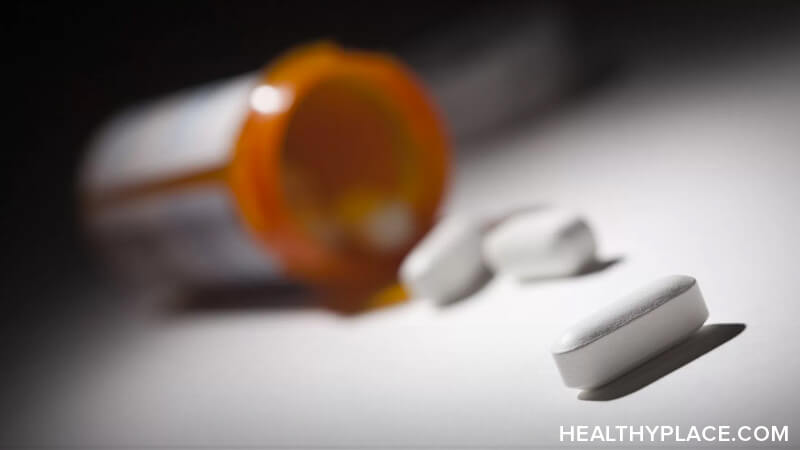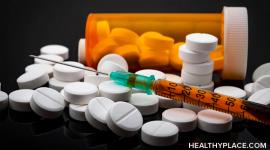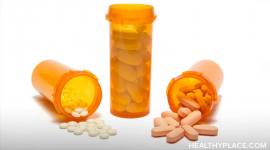What Is Opioid Addiction and Why Are Opioids so Addictive?

Opioid addiction is something that can happen very easily among people using these drugs. It can follow opioid dependence, which is an automatic physical response to the presence of opioids and the onset of withdrawal when opioid levels in the body drop. Opioid dependence is inevitable, but opioid addiction, while it happens easily, is not a given. So what is opioid addiction, exactly? What causes opioid addiction to happen so easily? Knowing these answers can help you avoid opioid addiction yourself, treat addiction, or help someone you know to get help for opioid addiction.
Like other addictions, opioid addiction is considered to be a brain disease. Opioids change the brain in ways that in turn lead to specific negative, self-destructive behaviors. Someone addicted to opioids compulsively seeks and uses these drugs with increasing intensity despite the problems it causes in her life. While often aware of the health, relationship, and legal problems the addiction is creating, a person addicted to opioids will use anyway. He has no other choice. The opioids have “rewired” the brain to need them.
Opioids are highly addictive. Whether they are legally prescribed painkillers such as morphine, Vicodin, codeine, oxycodone, or myriad others or they’re street drugs like heroin, people can easily become addicted to opioids. It’s not because people are weak, flawed, or “bad.” Opioid addiction happens because of the nature of the drugs, not the nature of the person’s character. Let’s take a look at what it is about the nature of opioids that causes addiction.
What Causes Opioid Addiction: The Physiology of Opioid Use
Opioids serve a positive purpose. They relieve pain. They also have a very pleasant euphoric effect. Both are reasons people take opioids in the first place. These don’t guarantee addiction, though. There is a specific process that underlies the reason for opioid addiction.
- The body and brain produce their own natural opioids (endorphins are among them).
- Because we make our own opioids, we have opioid receptors throughout our brain and body.
- When we take any type of opioid for any reason, the brain and body decide that they don’t need to make any of their own, so they stop producing these much-needed neurotransmitters and hormones.
- The opioids we take or use, not the naturally occurring ones that were made in our body, now bond to our opioid receptors.
- If we stop taking painkillers, heroin, etc., there are no natural opioids to take their place, and the brain and body begin to experience opioids withdrawal. This is dependence.
- We resume taking the opioids because the withdrawal symptoms are unpleasant.
- We also continue to take opioids because they activate the reward center of our brain, providing good feelings (both emotionally and physically) and numbing pain. We like this. Our reward centers crave more, but they’re greedy. They get used to the amount we’re taking, and they demand more. But they’re also stingy, and we give them more, they still give us the same amount of pleasure and pain relief. We are now tolerant of opioids.
- We use more opioids now because we need more to activate our reward centers, relieving pain and producing a high, and to avoid the unpleasant withdrawal symptoms that begin the very moment the drug levels in our system drop.
- With the reward system activated and taking over, cravings begin along with the compulsive opioid-seeking and intensified use. Addiction has begun, and without support and treatment, it is likely to intensify and continue because of the strong physiological need for and response to opioids.
Once addicted to opioids, someone must have them. She might misuse her prescription, taking more than she is supposed to. He might take prescriptions that aren’t his, another form of misuse. She might do what 80 percent of heroin users do: turn to heroin after misusing prescription painkillers (National Institute on Drug Abuse, 2017). The physiological need created by the opioids themselves perpetuates the addiction.
While opioid addiction can happen easily, taking an opioid painkiller isn’t a guarantee that you’ll become addicted. Take the medication as prescribed by your doctor, be diligent about checking in with him or her as well as self-monitoring your symptoms, and you can avoid opioid addiction.
APA Reference
Peterson, T.
(2021, December 16). What Is Opioid Addiction and Why Are Opioids so Addictive?, HealthyPlace. Retrieved
on 2025, December 14 from https://www.healthyplace.com/addictions/opioid-addiction/what-is-opioid-addiction-and-why-are-opioids-so-addictive



